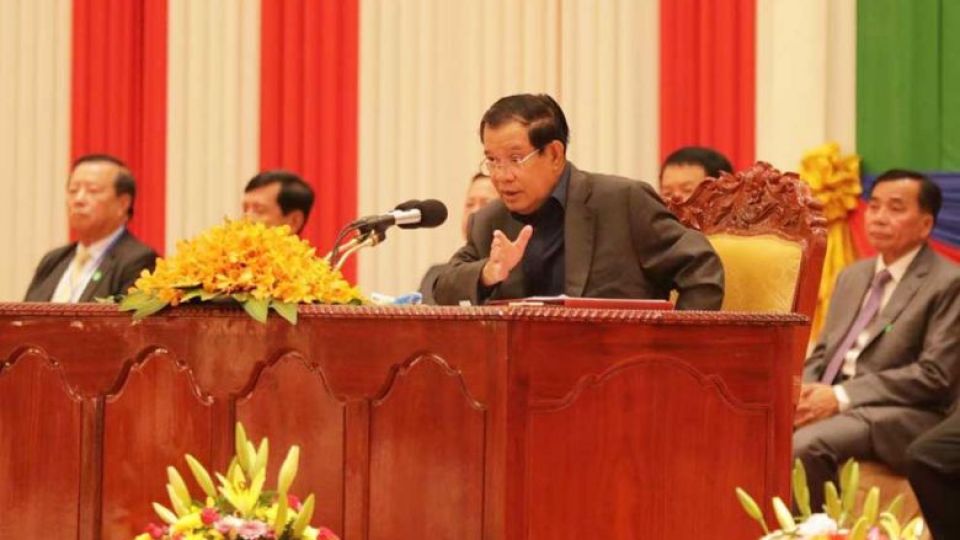May 18, 2022
PHNOM PENH – Prime Minister Hun Sen has said that Cambodia will not scrap the quarantine requirement for unvaccinated inbound travellers, despite several neighbouring countries reportedly considering lifting it, as he urged the Ministry of Health to continue seeking ways to establish a vaccine manufacturing facility.
“For me, I will not agree to removing this requirement, no matter what technical experts have to say,” Hun Sen said on May 17 during a meeting with volunteer health workers from the Samdech Techo Voluntary Youth Doctor Association (TYDA).
“We are now pushing people to get vaccinated, so why would we consider lifting the quarantine for unvaccinated people? If we do so, who would want to get vaccinated? It also affects other countries that are pushing for vaccination [of their population].”
The premier said Minister of Tourism Thong Khon had raised the idea to him about lifting quarantine measures for unvaccinated travellers, following reports that several countries had been in discussions on the topic.
But he said he rejected the idea, and would uphold the existing system of unvaccinated travellers having to undergo a seven-day quarantine.
“If we lift the quarantine requirement, then unvaccinated foreign visitors will be heading to Cambodia. But we must not think about money more than we do our lives. I will not permit backsliding on this issue,” he said.
The health ministry had reduced the quarantine duration in April from 14 to seven days for the unvaccinated or those who have not had at least two doses of any vaccine.
Health minister Mam Bun Heng said at the time that unvaccinated air travellers will have to undergo just one rapid test on their seventh day of quarantine. Those who enter the country by land, on the other hand, will have to take two rapid tests on the day of their arrival, before entering a quarantine centre, and again on day 7, before leaving the facility.
Separately, Hun Sen said he has been pushing for the establishment of a Covid-19 vaccine manufacturing facility in the country. Late last year, China pledged to assist Cambodia with the construction of such a facility, the license for which had been issued to a local firm to set up.
However, the prime minister warned that he could revoke the license, citing the slow progress made.
“The ministry must review the licence given to the company that was allowed to set up the vaccine facility. Question them as to whether or not they will build it; if not just revoke the licence. This is because the China side said that Cambodia is slow on this issue and that we had done nothing,” he said.
Hun Sen added that the health minister must report to him on a weekly basis on the progress of the vaccine factory. Should the contracted private firm not be able to deliver on its promises, he said, the government will rescind the contract and budget allocated to the company and build the facility with Chinese entities instead.
Cambodia has administered more than 42 million Covid-19 vaccine doses so far. Currently, nearly 10 million doses are in stock, with 20.5 million more still to arrive, including 15 million from China and 5.5 million from the US.
The premier also took the occasion to praise health volunteers from TYDA, which was set up in 2012. Since its establishment, the volunteer group has treated more than 330,000 people across the country.
During the Covid-19 pandemic, nearly 800 TYDA health volunteers participated in frontline work combating the spread of the disease.
Health ministry spokeswoman Or Vandine and World Health Organisation (WHO) representative to Cambodia Li Ailan also praised the contribution from TYDA on its efforts to protect public health.
“My congratulations and deep appreciation to all the health volunteers of TYDA … Their contribution and dedication to the Covid-19 vaccine rollout has made it a historical achievement,” Vandine said in a tweet on May 15.
Li similarly tweeted: “Congratulations to the amazing team for working towards greater achievements in people’s health, wellbeing, social and economic recovery from the pandemic in Cambodia.”


